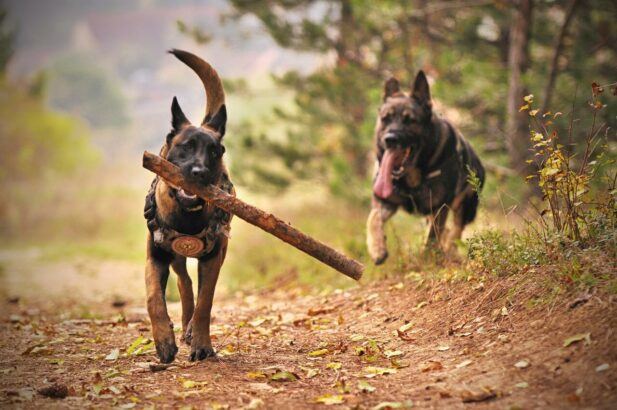Whether you’ve had your best friend since they were a pup, or rescued them as a senior dog, the joys of seeing them grow older with you in a safe loving home is a journey that will be filled with lots of love, along with a few manageable challenges.
What constitutes a senior dog? Well, VCA Animal Hospitals consider dogs are mature when they reach half of their anticipated life expectancy, and senior when they are in the last 25% of their expected lifespan. Large and giant breed dogs are considered to be senior between 5 and 8 years of age, while small breed dogs are considered to be senior at 8-10 years of age. When a dog has lived past their anticipated life expectancy, they are considered geriatric.
A wonderful resource for you in helping care for your senior dog is Good Old Doggie. If you’ve had your senior dog since it was a pup, your dog is a life-long family member. All the more reason to learn about how to usher your precious pup into its senior years.
Activity

Veterinarians say that the most important thing for an older dog is exercise and mental stimulation. A regular walk and some interactive toys will help keep your older dog’s heart healthier and make them feel like they’re still a part of the family.
As Petful notes, when you watch an older dog do something they enjoy, you get to see a bit of spark come back into their eyes, and you realize they can enjoy life just as much as they used to — it just may need to look different now. They may enjoy some games such as hiding large treats in the house or the yard for them to find, taking them swimming, and good old-fashioned fetch and tug of war.
Diet
Senior dogs need basic nutrients—protein, fat, carbohydrates and fiber, vitamins and minerals and commercial senior dog foods typically contain higher levels of nutrients that benefit aging dogs and can also contain lower levels of other nutrients to help maintain health. Since senior dogs are less active, senior diet recommendations often include 20 to 50 percent fewer calories than a typical adult diet.
Many dog owners find their senior dogs benefit from CBD supplements, so some manufacturers are adding those to treats. They come in a variety of flavors and textures, so try a few out to see what kind your dog prefers. You may see a noticeable difference in their mobility due to its effect on muscles and joints.
Veterinary Care
A senior pet will require more veterinary care than a younger pet. Older pets are at greater risk of developing health problems. This is because some geriatric diseases are age-related. Some of these health problems include:
- Arthritis can cause significant pain and affect mobility and quality of life.
- Diseases that are common in seniors but not in young animals, such as heart disease or cancer.
- A reduced immune system means a senior pet will be more susceptible to infections and viruses.
- A reduced ability to deal with heat stress or cold weather due to decreased circulation could lead to frostbite or hypothermia respectively.
You might be able to save on your vet bills with the aid of pet insurance. If you’re looking for pet insurance, consider the coverage level, deductibles, premiums, and maximum pet age they cover. And be sure to evaluate sample quotes and customer reviews.
Senior pets make for the best company. They provide unconditional love and companionship, and by you taking care of your dogs as they age, you can help them be happy and healthy for years to come.



